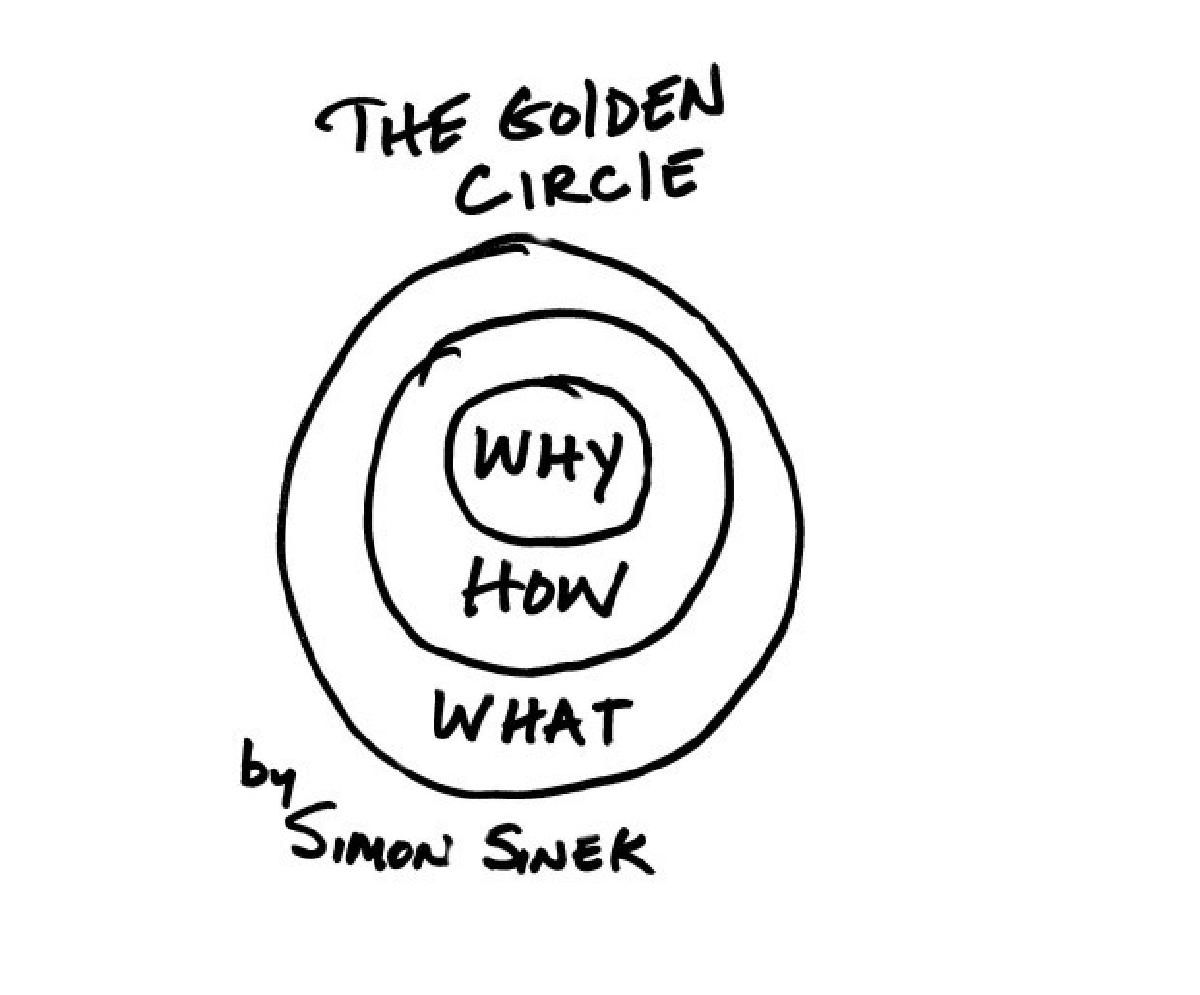Why Your “Why” Must Come First
Have you ever had a child in your life who questioned absolutely everything?

We’re going to the car wash now. Why?
You can’t have another cookie. Why?
We don’t have time to read another bedtime story. Why?
In my case, I was that child (sorry, parents). I was naturally curious and I couldn’t wrap my head around doing anything without good reason. It may have been annoying to my caretakers at the time, but you have to admit my goals had merit.
What’s the point of doing something if we don’t know why we’re doing it?
Such a simple (and seemingly intuitive) idea, and yet so many startups miss out on thinking through this essential first step.
“I just invented this awesome product/service, and I’m going to hire a team to help me sell it to customers around the world.”
Why?
The act of writing out all the reasons why you do what you do (and then narrowing them down to one statement) may seem like an abstract waste of time, but every successful company in history had this idea 100% nailed down.
They knew their “why,” and therefore, so did you.
One of my favorite TED Talks of all time was with Simon Sinek, a British-American motivational speaker, organizational consultant, and author of four books, including Start With Why. Those 18 minutes were played in at least five of my university marketing courses, where we discussed at length Sinek’s idea of “the golden circle.”

As Sinek puts it, every single organization on the planet knows what they do. Some know how they do it (e.g. your differentiator, unique value proposition, etc). But very few can articulate why they do what they do.
It all comes down to defining your purpose, and it has to resonate — not only with you and your team, but also with the customers you’re trying to reach. (Note: Sinek points out that making money is not an acceptable purpose. It’s a result that comes later.)
Why does your organization exist, and why should anyone care?
Having a well-defined “why” is legitimate heaven for a marketer. It makes our job easier because we know the story we need to tell and we have a compelling way to explain every facet of who we are to the customer.
Rather than having to communicate starting on the outside of the circle (what, how, why) we can create a narrative that starts with why.
You’ve probably heard of the “Why Game” — a great way of narrowing your focus by continuing to ask the question until you get to a final, simple statement. Our founder and CEO at Monitive, Lucian Daniliuc, recently did this exercise, both for himself personally and for Monitive as a whole. Take a look:
Why I’m doing what I do:
- I love challenges; they make me feel alive. Why?
- I always want to learn something new — to improve. Why?
- I want to do something I love. Why?
- I want to inspire and lead people. Why?
- I want to make a difference. Why?
- I want to help others get what they want, because that will get me what I want. Why?
- I want to make a positive impact; leave a mark on the world.
Coming down to a “Monitive” level, we do what we do…
- to help customers get notified when their sites go down. Why?
- to help customers get help in improving their uptime. Why?
- to make their visitors happy and not angry that they can’t get stuff done due to outage. Why?
- to bring a happy Internet experience for our customers’ visitors. Why?
- to make the Internet a better place. Why?
- to help the visitors enjoy their life. Why?
- to make an impact; to rest assured that we’ve made our mark in this world; to know that we’ve done good.
As you can see, it always comes back to making a positive impact on our customers and the world, which is how — after endless brainstorming and discussion — we came up with our vision statement:
We’re in the business of shaping a brighter, better Internet — one site at a time.
Clean, simple, and defined. Anytime we face a new issue as a team, we come back to our “why” and use it to drive our decision-making.
In the end, companies aren’t the only ones who benefit from this purpose-defining movement. Customers get to understand the values and motivation of who they’re buying from, and it leads to better, more mutually beneficial relationships.
Even my five-year-old self needed to know the “why” behind everything happening in my life. Customers of all ages are no different.
As Sinek says, “People don’t buy what you do, they buy why you do it.”
–Photo by Matteo Catanese on Unsplash
